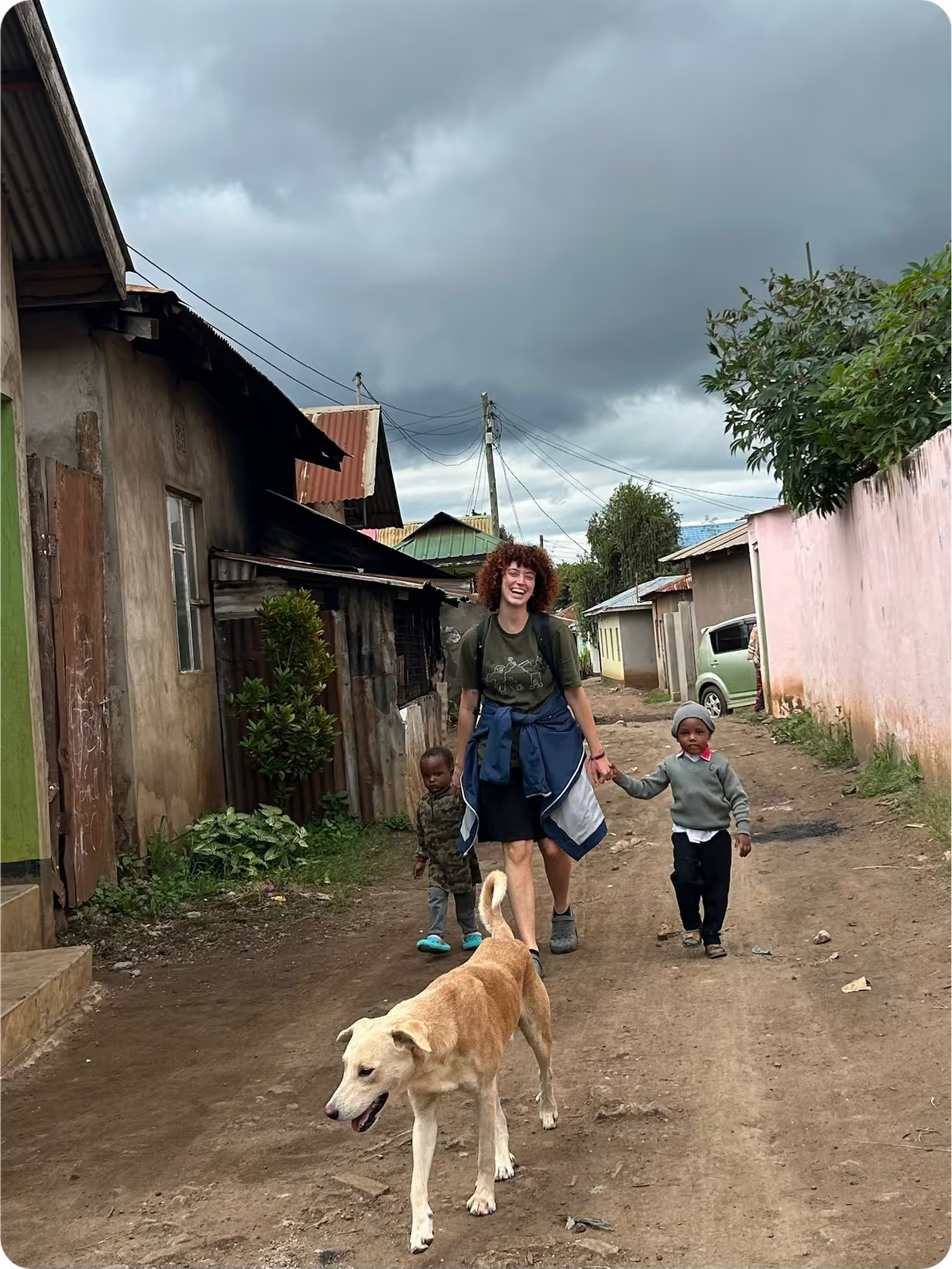

👋 Hi there!
Welcome to IMPRONTE VIVE, the newsletter for those who want to resist travel FOMO, learn how not to be a tourist 🧢🤳, and discover how to travel more responsibly! 🗺️
🧳 NEW OCTOBER TRIP JUST DROPPED: Check out the itinerary and new dates for our Sicily journey – discover the full program now.
👣 COMMUNITY: Join our Telegram channel for exclusive discounts, early-bird trips, and behind-the-scenes updates.
📣 CALL FOR LOCAL POV: Want to share an initiative or event happening in your city with our readers? Hit us up!
The white saviour complex: when helping becomes a form of power
I'm in Tanzania. I feel at home.
I grew up believing that borders shouldn't exist. That everyone should have access to a dignified life. That the gap between those who have too much and those who have too little is an open wound.
Here in Tanzania, I experience a reality where every day I’m welcomed like a sister. I receive smiles, hugs, and genuine connections. I've found a new family here—and, in some ways, I’ve found myself too.
And yet, no matter how much I try to approach with respect, empathy, and deep listening, I remain a Mzungu. The white one. The one from a world that built its privilege on the shoulders of others.
Even if I earn less than €1000 a month back in Italy and can’t afford rent - here, that doesn’t matter.
Because those who come to Tanzania - whether for safaris, volunteering, or “alternative” tourism - carry a status that good intentions alone can’t erase.
And that status carries weight. It has a history. It leaves footprints.

⚠️ What is the white saviour complex?
The white saviour complex is a paternalistic and colonial mindset that leads some white people - often unconsciously - to feel the need or the right to “save” non-Western communities.
Behind volunteering, humanitarian missions, NGOs, and even some artistic or tourism projects, there can be hidden power dynamics: the helper sets the rules, keeps control, and decides what’s “good” for the other.
The white saviour complex shows up when:
- Stories center on the Westerner rather than the local communities
- Local knowledge and existing solutions are ignored
- Experiences are documented or shared without consent or context
- Help is offered to feel better about oneself, not to truly rebalance power
💬 The paradox
I felt suspended.
Between a desire for real connection, and the risk of colonizing through my mere presence, through the systemic privilege I carry - even if I don’t want to.
Between the idea that “we’re all the same,” and the reality that we’re not. I can leave, travel, choose.
🧠 Reflections for travelers and volunteers
Who are we in the places we visit?
Are we willing to not be the protagonists of the stories we tell?
Who do we choose to listen to - and from whom do we expect to be heard?

🌍 Tourism and neocolonialism
Many Western travelers set out with the best intentions: to learn, connect, understand. But even the most “conscious” tourism can - often unintentionally - reproduce colonial patterns. How?
👣 When the traveler stays at the center
Visiting a village, witnessing a traditional ritual, sleeping in a local home… these might seem like authentic experiences. But who really has a voice in these situations? Are the people we meet truly happy to host us - or are they doing it out of economic necessity?
I visited a Maasai village with a friend - his relatives welcomed us warmly. Still, I wouldn’t do it again. I felt out of place, like a spectator in a show made for us. The most meaningful connections I’ve had came elsewhere - in spontaneous moments, with no pressure to "perform."

💰 When economic privilege sets the rules
Even those traveling on a budget often have more resources than the people hosting them. This creates imbalances: travelers come from a place of choice and freedom. Even if we don’t feel privileged, we carry that weight—and it shows.
For example, I try not to talk too much about the places I’ve been or my next trips. For some people around me, it might feel like showing off. Travel is normal for me, but for many it’s a luxury out of reach.
📸 When people become exotic backdrops for our memories
Smiling children, wrinkled hands, spontaneous moments… often captured to “document” our experience.
I take very few photos. And when I do, it’s only with people I know—always asking for permission. Photographing strangers just because they seem picturesque or “authentic” feels disrespectful to me.
Do you want to see our trips? Click here!
📚 Books of the month
“Decolonising the Mind” – Ngũgĩ wa Thiong’o
A foundational essay for understanding how colonialism operated through language and culture. The white saviour complex is not just a personal attitude—it’s part of a much bigger history.

White Saviorism in International Development: Theories, Practices and Lived Experiences
By Themrise Khan, Kanakulya Dickson, Maïka Sondarjee
With growing interest in unpacking the dynamics of racism in North–South relations, this book fills a gap in development literature by exploring white saviorism in Western-led initiatives in the Global South. It features theoretical insights, lived experiences, and reflections by 19 Global South authors, offering a complex and sensitive analysis of explicit and subtle forms of white saviourism in international cooperation.


.svg)
.svg)